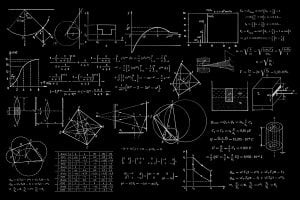
[Unsplash, Artturi Jalli]
You would have had the chance to get a taste of each of the three sciences in Lower Secondary, and now you have to choose which one(s) you’re going to pursue in Upper Secondary.
There are many things to think about. You have to consider your interest in each subject, and the careers you can have related to each subject in the future.
It’s a big decision and it can be intimidating, so here’s a guide to help you decide whether you want to take Physics in your Upper Secondary life!
Common Studying Methods

[Unsplash, Dan Cristian Pădureț]
Like all subjects, studying Physics comes with some form of memorisation, or else you wouldn’t be learning anything.
Still, you do not have to memorise chunks of content like with some other subjects (e.g. Biology and Chemistry). It’s mainly formulas that you have to remember so that you can apply them to your questions later on.
With Physics, the most important thing is to understand the concepts you are being taught.
Pros of Taking Physics in Upper Secondary

[Unsplash, engin akyurt]
Physics has a lot of maths in it, so it can be considered easier if Maths is one of your strong subjects.
You also have to solve problems instead of just answering with memorised knowledge and apply what you have learnt, which can be more mentally stimulating for some.
There are real-life applications for Physics that can be seen on a daily basis, unlike some other subjects such as Chemistry where the link may be harder to see. For example, Physics is applied to the electricity in our homes.
Cons of Taking Physics in Upper Secondary

[Unsplash, Roman Mager]
Physics can be harder if maths isn’t one of your strong points, since there are many calculations that have to be made in Physics. Sometimes, you even have to use what you learnt in your Maths classes. Applying formulas to problems can be hard.
Since Physics involves a lot of maths, it can also be repetitive. It takes a lot of practice to be able to answer questions consistently and there is still theory to remember.
Contents and Experiments in Physics

[Unsplash, Michael Dziedzic]
Before you make the decision to take Physics, consider the contents you will be learning:
Topics include:
Measurements:
- Physical Quantities, Units and Measurements
Newtonian Mechanics:
- Kinematics
- Dynamics
- Turning Effects of Forces
- Pressure
- Energy
Thermal Physics:
- Kinetic Particle Model of Matter
- Thermal Processes
- Thermal Properties of Matter
Waves:
- General Wave Properties
- Electromagnetic Spectrum
- Light
Electricity and Magnetism:
- Static Electricity
- Current of Electricity
- D.C. Circuits
- Practical Electricity
- Magnetism
- Electromagnetism
- Electromagnetic Induction
Radioactivity:
- Radioactivity
Experiments in Physics are considered neater than those of the other two sciences by some, since there are usually no chemicals or fluids to clean up. Experiments may involve observing the refraction of light through different surfaces, and electromagnets.
Career Paths

[Unsplash, Dan Meyers]
Taking Physics can lead to many job opportunities in the future—so many careers make use of this science.
Engineering is one of them, or you could have a career in astronomy. Jobs related to technology can also come from a Physics degree; examples of this are robotics and nanotechnology.
Jobs in the medical field aren’t out of the question, either, since the medical field has a need for people who can invent medical devices.
Meteorology and geophysics are also areas that you can go into, since if you study Physics you often end up with an understanding of how the planet works.
Conclusion

[Unsplash, Sumeet B]
Any of the three sciences can be seen as boring, but that shouldn’t stop you from taking it if you want to. What’s most important is to listen to your wants, not others’. After all, you’re the one who’s going to be sitting for the ‘O’ Levels in Secondary 4.
Everything has its pros and cons, so consider those before making your decision! And most of all, enjoy what you’re doing. Because if you’re worried about struggling, there are always tutors who can help, but they can’t help you feel better about a subject choice you made.
